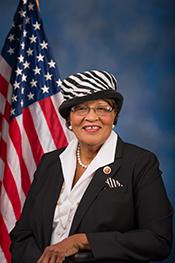0
0
0
Recognizing the significance of the Greensboro Four sit-in during Black History Month.
3/13/2024, 5:01 PM
Summary of Bill HRES 88
Bill 118 HRES 88, also known as the Greensboro Four sit-in resolution, is a piece of legislation that recognizes the historical significance of the Greensboro Four sit-in during Black History Month. The Greensboro Four sit-in took place on February 1, 1960, when four African American college students from North Carolina A&T State University sat down at a segregated lunch counter in Greensboro, North Carolina, and refused to leave until they were served.
The resolution acknowledges the bravery and determination of the Greensboro Four – Franklin McCain, Joseph McNeil, Ezell Blair Jr., and David Richmond – in peacefully protesting against racial segregation and discrimination. It also highlights the impact of their actions in sparking a wave of sit-ins and other civil rights demonstrations across the country.
Furthermore, the resolution emphasizes the importance of remembering and honoring the contributions of African Americans to the civil rights movement and the ongoing struggle for equality and justice. It calls on all Americans to reflect on the legacy of the Greensboro Four and to continue working towards a more inclusive and equitable society. In conclusion, Bill 118 HRES 88 is a bipartisan effort to recognize and commemorate the Greensboro Four sit-in as a pivotal moment in American history, particularly during Black History Month. It serves as a reminder of the power of peaceful protest and the importance of standing up against injustice.
The resolution acknowledges the bravery and determination of the Greensboro Four – Franklin McCain, Joseph McNeil, Ezell Blair Jr., and David Richmond – in peacefully protesting against racial segregation and discrimination. It also highlights the impact of their actions in sparking a wave of sit-ins and other civil rights demonstrations across the country.
Furthermore, the resolution emphasizes the importance of remembering and honoring the contributions of African Americans to the civil rights movement and the ongoing struggle for equality and justice. It calls on all Americans to reflect on the legacy of the Greensboro Four and to continue working towards a more inclusive and equitable society. In conclusion, Bill 118 HRES 88 is a bipartisan effort to recognize and commemorate the Greensboro Four sit-in as a pivotal moment in American history, particularly during Black History Month. It serves as a reminder of the power of peaceful protest and the importance of standing up against injustice.
Congressional Summary of HRES 88
This resolution recognizes (1) the Greensboro Four for their contributions to the Civil Rights Movement and the significant role they played as a catalyst for the formation of the Student Non-Violent Coordinating Committee, (2) the value of ethnic and racial diversity in the United States, and (3) the continued importance of sit-ins as an effective form of nonviolent resistance. The resolution also encourages states to include information about the Greensboro Four in their educational curriculums.
Read the Full Bill
Current Status of Bill HRES 88
Bill HRES 88 is currently in the status of Bill Introduced since February 1, 2023. Bill HRES 88 was introduced during Congress 118 and was introduced to the House on February 1, 2023. Bill HRES 88's most recent activity was Referred to the Committee on Education and the Workforce, and in addition to the Committee on the Judiciary, for a period to be subsequently determined by the Speaker, in each case for consideration of such provisions as fall within the jurisdiction of the committee concerned. as of February 1, 2023
Bipartisan Support of Bill HRES 88
Total Number of Sponsors
1Democrat Sponsors
1Republican Sponsors
0Unaffiliated Sponsors
0Total Number of Cosponsors
28Democrat Cosponsors
28Republican Cosponsors
0Unaffiliated Cosponsors
0Policy Area and Potential Impact of Bill HRES 88
Primary Policy Focus
Civil Rights and Liberties, Minority IssuesPotential Impact Areas
- Congressional tributes
- Elementary and secondary education
- Higher education
- North Carolina
- Protest and dissent
- Racial and ethnic relations
- Teaching, teachers, curricula
- U.S. history
Alternate Title(s) of Bill HRES 88
Recognizing the significance of the Greensboro Four sit-in during Black History Month.
Recognizing the significance of the Greensboro Four sit-in during Black History Month.
Comments
Sponsors and Cosponsors of HRES 88
Latest Bills
Protect America's Workforce Act
Bill HR 2550December 13, 2025
Incentivizing New Ventures and Economic Strength Through Capital Formation Act of 2025
Bill HR 3383December 13, 2025
Lower Elwha Klallam Tribe Project Lands Restoration Act
Bill HR 2388December 13, 2025
World War II Women's Memorial Location Act
Bill HR 2290December 13, 2025
Public Lands Military Readiness Act of 2025
Bill HR 5131December 13, 2025
Cormorant Relief Act of 2025
Bill HR 2293December 13, 2025
Providing for consideration of the bill (H.R. 2550) to nullify the Executive Order relating to Exclusions from Federal Labor-Management Relations Programs, and for other purposes.
Bill HRES 432December 13, 2025
Quinault Indian Nation Land Transfer Act
Bill HR 2389December 13, 2025
Electric Supply Chain Act
Bill HR 3638December 13, 2025
Make SWAPs Efficient Act of 2025
Bill HR 1676December 13, 2025
Recognizing the significance of the Greensboro Four sit-in during Black History Month.
Bill HRES 1035March 22, 2024





